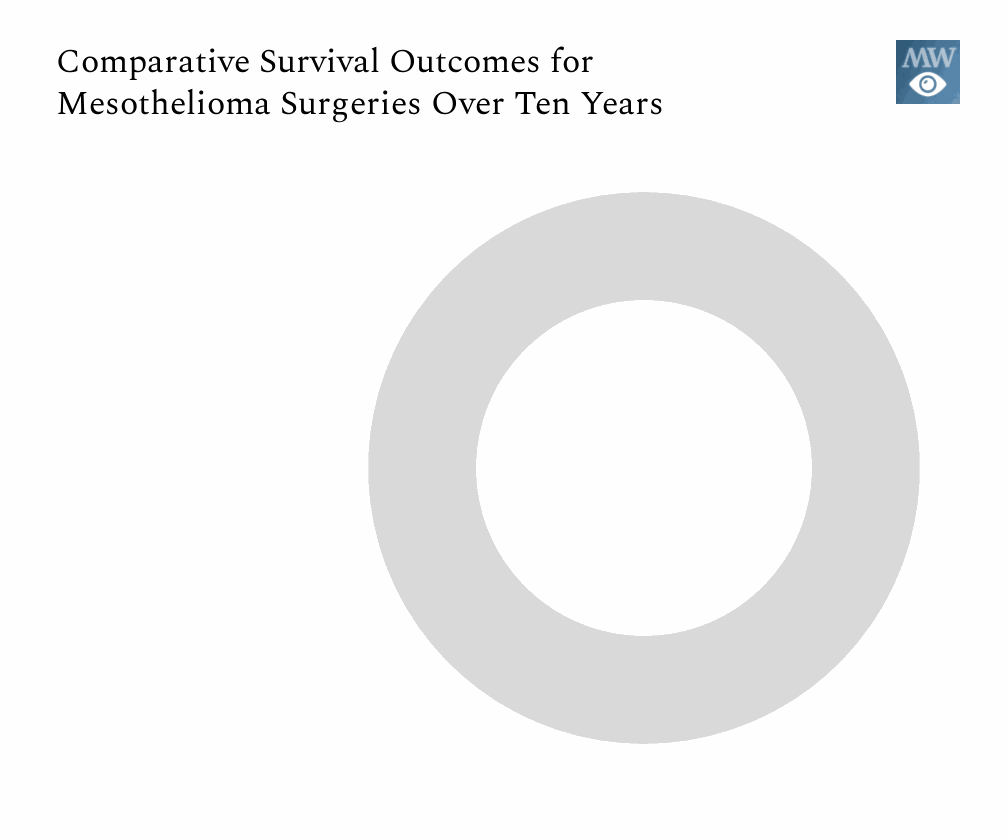For patients diagnosed with the aggressive cancer mesothelioma, the choice of surgical treatment has always been a complex decision. Historically, the radical surgery to remove an entire lung (extrapleural pneumonectomy or EPP) was considered the standard. However, a groundbreaking analysis from a renowned Italian cancer center challenges this conventional approach, suggesting that less invasive, lung-sparing procedures may offer superior survival rates.
The Retrospective Study
The study retrospectively examined nearly two decades of mesothelioma surgeries performed between 2003 and 2020. Researchers analyzed the medical records of 243 patients who underwent various surgical interventions, ranging from curative to palliative procedures.
Three primary surgical techniques were evaluated:
- Pleurectomy/decortication (P/D): Removal of the lung lining while preserving the lung itself.
- Extrapleural pneumonectomy (EPP): Complete removal of the affected lung.
- Partial pleurectomy or biopsy (PP/B): Less aggressive procedures.
Survival Advantage of Lung-Sparing Surgery
After accounting for factors such as gender and year of operation, the study’s findings were compelling. Patients who underwent the lung-sparing P/D surgery demonstrated a remarkable 10-year survival rate of 16%, significantly higher than those who had PP/B (1.8%) or EPP (0%).

This chart highlights the one-year survival rates of patients with mesothelioma who underwent different surgical procedures. Pleurectomy shows the highest 1-year survival rate at 75%, followed by Biopsy at 70%, and Pneumonectomy at 55%. Long-term survival rates decrease significantly, with fewer than 5% of patients surviving beyond 10 years regardless of surgery type
Lead author Dr. Riccardo Orlandi emphasized, “Lung-sparing P/D should be the preferred approach whenever feasible, offering comparable or superior long-term outcomes compared to more radical procedures, without the associated risks.”
Key Insights and Implications
The study found that patients who had the P/D surgery lived significantly longer than those who had the EPP:
- Patients undergoing P/D surgery had a median survival of 27.5 months, versus 19.8 months for those undergoing EPP.
- Surgical advancements and the integration of multimodal treatments have likely contributed to improved survival rates over time.
- The study challenges the long-held belief that EPP, with its high risks and lower survival outcomes, should be the standard approach.
Rethinking Aggressive Surgical Strategies
While EPP was once considered the best chance at removing all visible tumors, studies like the MARS trial point to a shift away from aggressive tumor removal strategies. Now, the focus is on achieving optimal cytoreduction that allows for effective multimodal treatment in specialized centers.
The Role of High-Volume Surgery Centers
The study underscores the importance of seeking treatment at experienced, high-volume academic hospitals with multidisciplinary teams. As Dr. Orlandi states, “Curative surgery should only be performed in highly selected patients at specialized centers, where tailored surgical approaches can optimize outcomes.”
This pioneering study adds to the evolving debate over the best surgical approach for mesothelioma. The data suggests that less invasive, lung-sparing surgeries may not only extend survival but also improve quality of life by preserving lung function.
As research progresses, these insights will be invaluable in guiding treatment decisions and providing mesothelioma patients with the most effective and personalized care possible.



